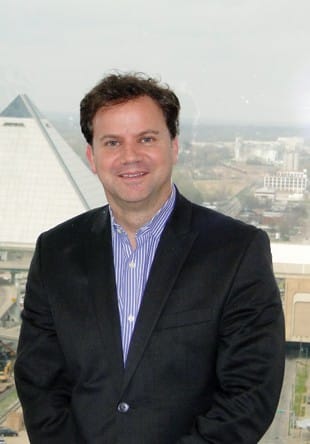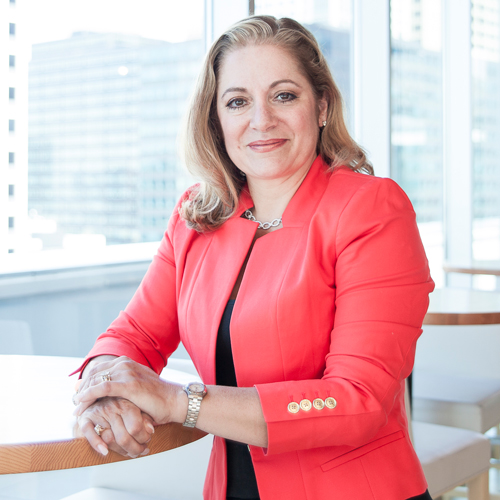
Carlos Provencio originally wanted to be a city planning specialist. But an opportunity from the dean of the St. Louis University school of law would change his career path. The dean recommended Provencio for a judicial clerkship. He accepted that clerkship in Missouri in 1996 and a second in Texas in ‘97. Working for those two judges—and interning for two others—made a lasting impact on a young Provencio. He watched as the justices laid aside personal bias and political persuasions to make fair rulings based solely on law and evidence. Today, as he tries securities arbitrations for Raymond James Financial, Provencio anchors his arguments on the law and facts alone.
“What I learned early in my career from the judges is the value of our adversarial legal system,” says Provencio. Fresh out of law school, the liberal-minded Provencio expected each conservative judge to let factors such as worldview, ethnicity, and personal perspective influence decisions. “What really struck me was how fair the judges were,” he recalls. “I thought they would rule one way but watched as they listened to each argument and weighed the facts to come up with fair conclusions that I didn’t always expect. That’s what’s so special about our system.”
Prior to law school, Provencio worked for two years in banking as an analyst. After his clerkships he spent 13 years working in antitrust, white collar, and securities litigation for major global firms. Those experiences helped Provencio develop unique expertise and become a legal authority on high-yield bond funds and other complex investment tools. His skill set became even more marketable in the aftermath of the global financial crisis of 2008, as investors rushed to bring claims against their investment brokers. Regional broker dealer Morgan Keegan & Company (acquired by Raymond James in 2012) hired Provencio to handle such claims. Provencio started the job on a Wednesday and was flying to his first hearing that Sunday. Since 2009, he has participated in more than 40 arbitrations.
Investors sign account agreements that contain arbitration clauses, so most of Provencio’s cases are in securities arbitrations regulated by the Financial Industry Regulatory Authority. Provencio’s job is to represent his company against claimants who believe their investment unfairly caused them financial losses. He travels one week per month to manage and try arbitrations as well as educate brokers on how to handle customers in a fair and effective way.
As he does so, Provencio often looks back to his days clerking. “What I saw then was that the law is above opinion,” he says. “You might not like the outcome, but the law and the facts should dictate the winner.” He defends claims vigorously for Morgan Keegan & Company and Raymond James when the facts and the law demonstrate no wrongdoing. And while the company has had to defend against claims of fraud, Provencio concedes that some investors can be placed in the wrong investments. “If investors truly want risk-free investments, a broker shouldn’t place them in the stock market or in high-yield bonds,” he explains. “In applying what the judges taught me early in my career, I have to make sure my company is well-represented in all claims, but I have to do so fairly for the system to work.”
Sometimes the facts require an attorney to settle. For instance, Provencio will do so if a claimant received a bad recommendation that caused a financial loss. The claimant, however, deserves only to be made whole. If they demand more, he might have to arbitrate the case for the right result. “I believe in the system. Many times in arbitration, both sides go away unhappy, but that’s how you know it’s probably working.”
Provencio says someone in his position must think on his feet. Arbitrations don’t allow for twelve months of discovery and depositions. There is a limited exchange of information, and lawyers don’t always know what response their questions will elicit. “If you get an unexpected answer, you have to find a way to bring it back around and make it favorable for your side,” he says. Arbitration panels—not judges—decide the outcomes in these cases. A good lawyer will tell a compelling story, connect with the panel, and build trust without launching personal attacks.
With the securities arbitrations winding down, Provencio is helping to ensure his company is on safe footing going forward. “The industry does a lot of good. We help people retire, put kids through college, and take vacations,” he says. Provencio is now acting preemptively to avoid future problems. He’s instructing brokers to talk to clients about risk instead of focusing on returns. But investors, Provencio explains, must be aware of the risk and be accountable when they assume it. “Treat everybody the same and give everyone a chance,” Provencio says. That philosophy has taken him far. After one case, he received a special compliment from an opposing party: “He said he didn’t want to meet me under these circumstances,” Provencio recalls. “But he said, ‘You seem like a good guy. You represent your client well, and I hope we meet again.’”

